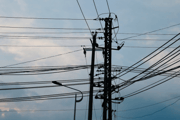Four major banks to pay $30 million in refunds after ASIC review
By
Danielle F.
- Replies 96
When it comes to saving money, banks are the go-to place for everyone to secure hard-earned cash.
With many banks to choose from, everyone has the right to save money and access reliable banking services.
In a recent turn of events, four of Australia's major banks could return nearly $30 million to their customers following a damning review.
A report by the Australian Securities and Investments Commission (ASIC) shed light on the practices of ANZ, Commonwealth Bank, Westpac, and the mid-tier Bendigo and Adelaide Bank.
The report, set to be released to the public, found that these institutions kept at least two million low-income customers in high-fee accounts.
The report also uncovered that these banks charged exorbitant fees to those reliant on Centrelink payments.
The review was part of ASIC's broader initiative aimed at improving financial services for First Nations customers, including avoidable bank fees.
ASIC commissioner Alan Kirkland highlighted the importance of this project.
'We focused in this project on the banks who were most likely to have First Nations consumers on low incomes trapped in high-fee accounts,' Mr Kirkland shared.
In response to the findings, the said banks pledged to take corrective action.
The four banks committed to transitioning more than 200,000 customers into low-fee or no-fee accounts, which could help banks save around $10.7 million annually.
Additionally, the banks would refund over $28 million in fees to affected customers within the next 12 to 18 months.
This initiative could cover about $24.6 million for Aboriginal and Torres Strait Islander students and apprentices receiving ABSTUDY payments.
It would also cover customers living in areas with substantial First Nations populations.
The review also brought to light the cumbersome processes customers had to endure to switch to low-fee accounts, as some travelled hundreds of kilometres to their bank's nearest branch.
'At any time, ASIC, and the community, expects that the banks will treat their customers fairly,' Mr Kirkland added.
ASIC's report has made it clear that the implications of these findings are not limited to the four banks in question but extend to all banking institutions across Australia.
'We're expecting all of them to read the report and make improvements to their practices to stop other people being trapped in high-fee accounts that they can't afford,' Mr Kirkland concluded.
This news may come as a shock, but it also serves as a reminder to review your bank accounts.
For low-income bank users or those receiving Centrelink payments under these banks, it's worth contacting your bank to see if you're eligible for a low-fee account.
If you have any concerns or questions about your banking arrangements, feel free to reach out to your bank or seek independent financial advice.

What do you think of this ASIC report? Share your thoughts and opinions with us in the comments below.
With many banks to choose from, everyone has the right to save money and access reliable banking services.
In a recent turn of events, four of Australia's major banks could return nearly $30 million to their customers following a damning review.
A report by the Australian Securities and Investments Commission (ASIC) shed light on the practices of ANZ, Commonwealth Bank, Westpac, and the mid-tier Bendigo and Adelaide Bank.
The report, set to be released to the public, found that these institutions kept at least two million low-income customers in high-fee accounts.
The report also uncovered that these banks charged exorbitant fees to those reliant on Centrelink payments.
The review was part of ASIC's broader initiative aimed at improving financial services for First Nations customers, including avoidable bank fees.
ASIC commissioner Alan Kirkland highlighted the importance of this project.
'We focused in this project on the banks who were most likely to have First Nations consumers on low incomes trapped in high-fee accounts,' Mr Kirkland shared.
In response to the findings, the said banks pledged to take corrective action.
The four banks committed to transitioning more than 200,000 customers into low-fee or no-fee accounts, which could help banks save around $10.7 million annually.
Additionally, the banks would refund over $28 million in fees to affected customers within the next 12 to 18 months.
This initiative could cover about $24.6 million for Aboriginal and Torres Strait Islander students and apprentices receiving ABSTUDY payments.
It would also cover customers living in areas with substantial First Nations populations.
The review also brought to light the cumbersome processes customers had to endure to switch to low-fee accounts, as some travelled hundreds of kilometres to their bank's nearest branch.
'At any time, ASIC, and the community, expects that the banks will treat their customers fairly,' Mr Kirkland added.
ASIC's report has made it clear that the implications of these findings are not limited to the four banks in question but extend to all banking institutions across Australia.
'We're expecting all of them to read the report and make improvements to their practices to stop other people being trapped in high-fee accounts that they can't afford,' Mr Kirkland concluded.
This news may come as a shock, but it also serves as a reminder to review your bank accounts.
For low-income bank users or those receiving Centrelink payments under these banks, it's worth contacting your bank to see if you're eligible for a low-fee account.
If you have any concerns or questions about your banking arrangements, feel free to reach out to your bank or seek independent financial advice.
Key Takeaways
- Four major Australian banks could refund nearly $30 million to low-income customers following an ASIC review.
- ANZ, Commonwealth Bank, Westpac, and Bendigo and Adelaide Bank kept two million low-income customers—including many dependent on Centrelink payments—in high-fee accounts.
- Over 200,000 customers will be moved to low-fee accounts, saving them approximately $10.7 million a year.
- The banks will also refund over $28 million in fees to affected customers over the next 12 to 18 months, with a focus on First Nations communities.








